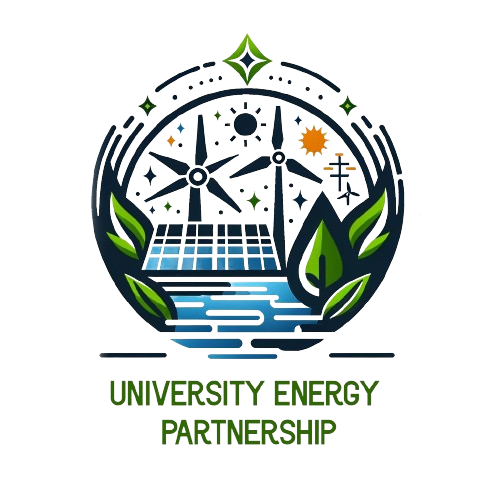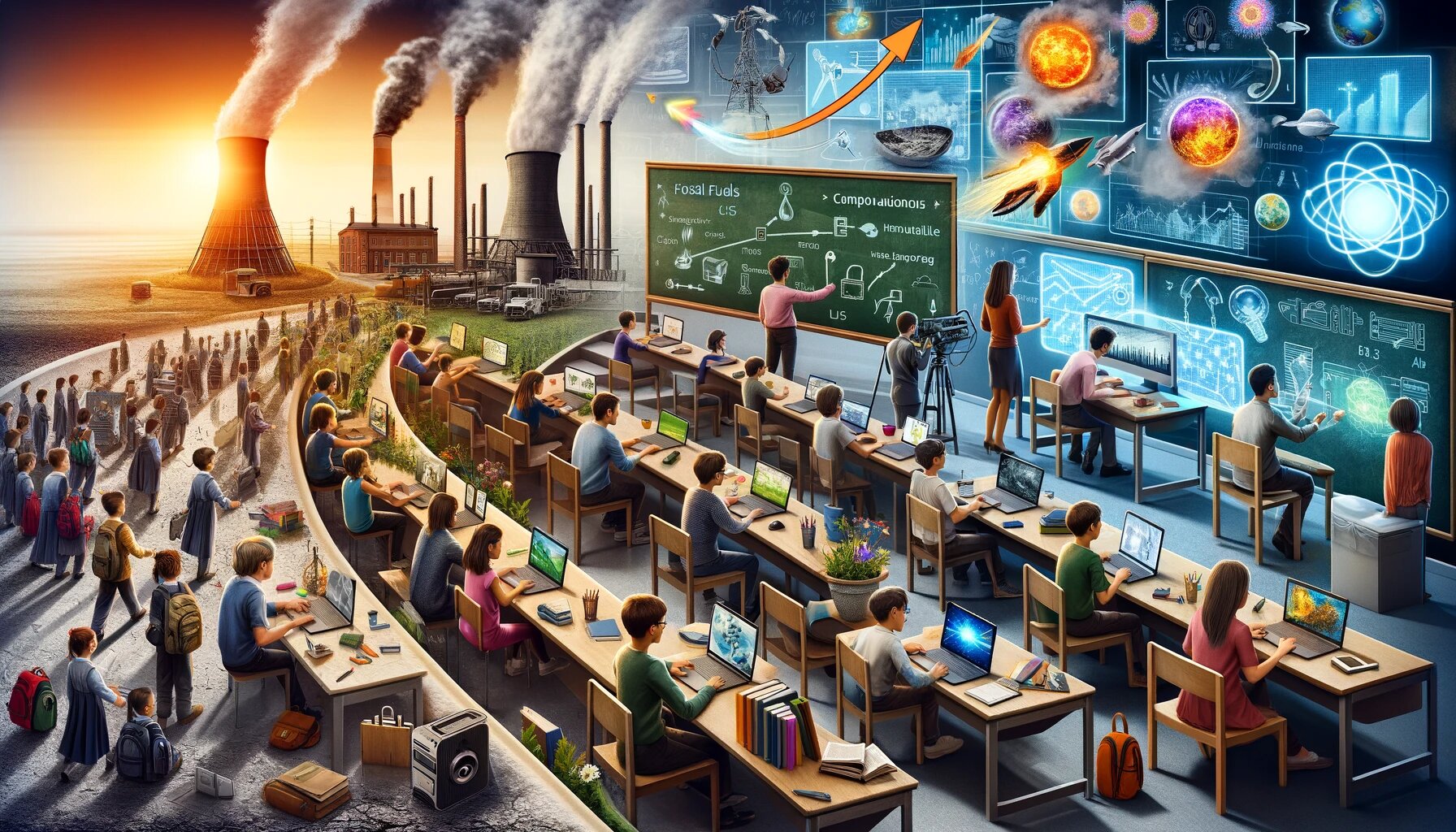In our ever-changing world, the need for sustainable and efficient energy sources has become more critical than ever. As society grapples with climate change and resource depletion challenges, energy-related educational programs have evolved to meet the demands of a rapidly evolving field. This article explores the history and development of these programs, highlighting key milestones and their impact on our energy landscape.
1. The Early Days: Fossil Fuels Dominance
The history of energy education can be traced back to the Industrial Revolution, when coal and, later, oil became the primary sources of energy. At that time, formal education on energy-related topics was limited, and most knowledge was passed down through apprenticeships and on-the-job training. Industries such as coal mining and oil drilling relied heavily on experienced workers passing on their knowledge to the next generation.
2. Emergence of Formal Energy Education
2.1. The 1970s: A Turning Point
The 1970s marked a turning point in energy education. The oil crisis of 1973 and growing environmental concerns prompted governments and institutions to invest in formal energy education programs. Universities began offering courses in energy management, renewable energy, and environmental science. This shift in focus reflected the realization that the world’s dependence on fossil fuels was unsustainable in the long run.
2.2. Energy Institutes and Research Centers
During this period, several energy institutes and research centers were established to advance energy-related research and education. One notable example is the Massachusetts Institute of Technology’s (MIT) Energy Initiative, founded in 2006, which focuses on addressing global energy challenges through multidisciplinary research and education. Such institutions played a crucial role in driving innovation and fostering collaboration between academia and industry.
3. The Rise of Renewable Energy
3.1. The 21st Century: Shifting Paradigms
The 21st century witnessed a significant shift towards renewable energy sources. With growing concerns about climate change and the environmental impact of fossil fuels, educational programs began to emphasize renewable energy technologies and sustainability. The push for renewable energy was not just a response to environmental concerns but also a recognition of the finite nature of fossil fuel resources.
3.2. Integrating Renewable Energy into Curricula
Universities and technical colleges around the world started offering specialized programs in renewable energy engineering, solar power, wind energy, and sustainable energy systems. These programs provided students with essential knowledge and trained a new generation of professionals dedicated to advancing renewable energy solutions. The inclusion of renewable energy courses within existing curricula also became common, ensuring that students across various disciplines were exposed to energy sustainability concepts.
4. Online Learning and Accessibility
4.1. The Digital Revolution
The advent of the internet and digital technology revolutionized education, including energy-related programs. Online courses and degree programs became increasingly popular, making energy education more accessible to a global audience. This digital transformation democratized knowledge and allowed individuals from diverse backgrounds to access high-quality energy education materials.
4.2. Massive Open Online Courses (MOOCs)
Platforms like Coursera, edX, and Udacity introduced MOOCs, allowing students to enroll in energy-related courses from top universities and institutions worldwide. These courses covered a wide range of topics, from energy policy to clean energy technology. MOOCs broke down geographical barriers and made energy education more affordable, as many of these courses were offered for free or at a fraction of the cost of traditional education.
5. Energy Education for Sustainability
5.1. Sustainability as a Core Component
In recent years, sustainability has become a core component of energy education programs. As the world seeks more sustainable energy solutions, educational institutions have integrated sustainability principles into their curricula. Students are encouraged to consider the environmental, social, and economic aspects of energy production and consumption in their studies.
5.2. Interdisciplinary Approach
Energy education programs now emphasize an interdisciplinary approach, encouraging students to explore the connections between energy, the environment, economics, and social factors. This holistic approach helps students understand the complex challenges surrounding energy production and consumption. By looking beyond the technical aspects, students are better prepared to address the real-world complexities of the energy transition.
6. Industry Partnerships and Hands-On Experience
6.1. Bridging the Gap
Many educational programs have established partnerships with energy companies and organizations to bridge the gap between academia and industry. These partnerships provide students with valuable hands-on experience, internships, and research opportunities. Industry involvement not only enhances the practical aspects of education but also ensures that the curriculum remains relevant to the needs of the energy sector.
6.2. Real-World Projects
Students in energy-related programs often work on real-world projects, such as designing renewable energy systems or conducting energy audits for businesses. These practical experiences enhance their skills and prepare them for careers in the energy sector. Such projects also contribute to solving practical energy problems and can lead to innovative solutions.
7. The Future of Energy Education
7.1. Advanced Technologies
As technology continues to advance, energy education will likely incorporate emerging technologies such as artificial intelligence, blockchain, and data analytics. These innovations will play a crucial role in optimizing energy systems and improving efficiency. Students will need to be equipped with the skills to harness these technologies for sustainable energy solutions.
7.2. Addressing Global Challenges
Energy education programs will also need to address global challenges such as energy poverty, energy access in remote areas, and the ethical considerations of energy production and consumption. Students will be tasked with finding innovative solutions to these pressing issues. The energy sector will require professionals who can not only develop cutting-edge technologies but also navigate complex global energy dynamics.
8. Globalization of Energy Education
In an increasingly interconnected world, the globalization of energy education has emerged as a pivotal force in addressing the complex challenges of the energy sector. This phenomenon is characterized by a growing recognition of the need for international collaboration and cross-cultural understanding in the realm of energy-related studies. Here, we delve into the significance of the globalization of energy education and its multifaceted impact on students, institutions, and the energy industry.
International Collaborations: Energy is a global concern that transcends borders. As a result, energy education programs have actively sought international collaborations to broaden their horizons. Universities and institutions are partnering with counterparts from around the world to facilitate knowledge exchange, joint research projects, and shared resources. Such collaborations enable students to gain a global perspective on energy challenges and solutions, enriching their educational experience.
Cross-Cultural Challenges and Adaptations: The globalization of energy education brings with it the challenge of adapting to different cultural contexts. Institutions must tailor their programs to suit the needs and expectations of students from diverse backgrounds. This involves understanding and accommodating variations in teaching styles, languages, and cultural norms, fostering an inclusive and supportive learning environment.
Global Opportunities: Students in energy-related programs now have access to a wide range of global opportunities, from studying abroad to participating in international internships. These experiences enhance their knowledge and develop valuable cross-cultural skills and a broader worldview. Graduates who have engaged in global energy education are better prepared to work in diverse and international energy teams, a valuable asset in today’s global energy sector.
The globalization of energy education represents a fundamental shift in the way we approach energy challenges. Fostering international collaboration and understanding equips students with the skills and perspectives needed to address global energy issues effectively, transcending boundaries and working collectively towards a sustainable energy future.
Conclusion
The evolution of energy-related educational programs reflects the changing landscape of the energy industry itself. From the dominance of fossil fuels to the rise of renewable energy and sustainability, these programs have adapted to meet the demands of a rapidly changing world. As we look to the future, energy education will continue to play a pivotal role in shaping tomorrow’s energy solutions, preparing the next generation of leaders and innovators to tackle the pressing challenges of our time. With a commitment to sustainability, interdisciplinary learning, and real-world experience, energy education will remain a driving force behind the transition to a more sustainable and equitable energy future.

